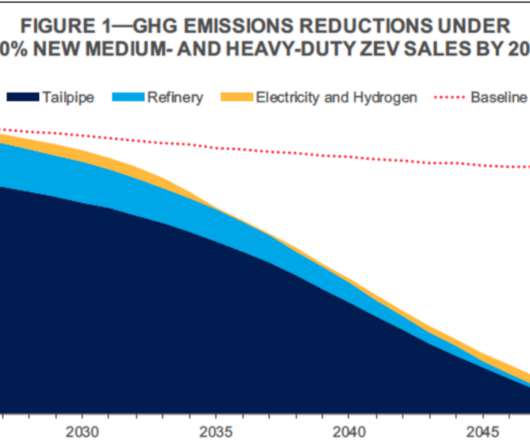GFEI report suggests $2T savings from fuel economy improvements in ICE vehicles through 2025 can help fund long-term transition to plug-ins
Green Car Congress
NOVEMBER 8, 2013
Increasingly efficient conventional combustion-engine vehicles will be key in moving towards a low carbon future, according to the GFEI. Far better fuel economy from cost-effective conventional technologies can keep fuel demand steady and save close to half the CO 2 emissions from cars by this date.



















Let's personalize your content